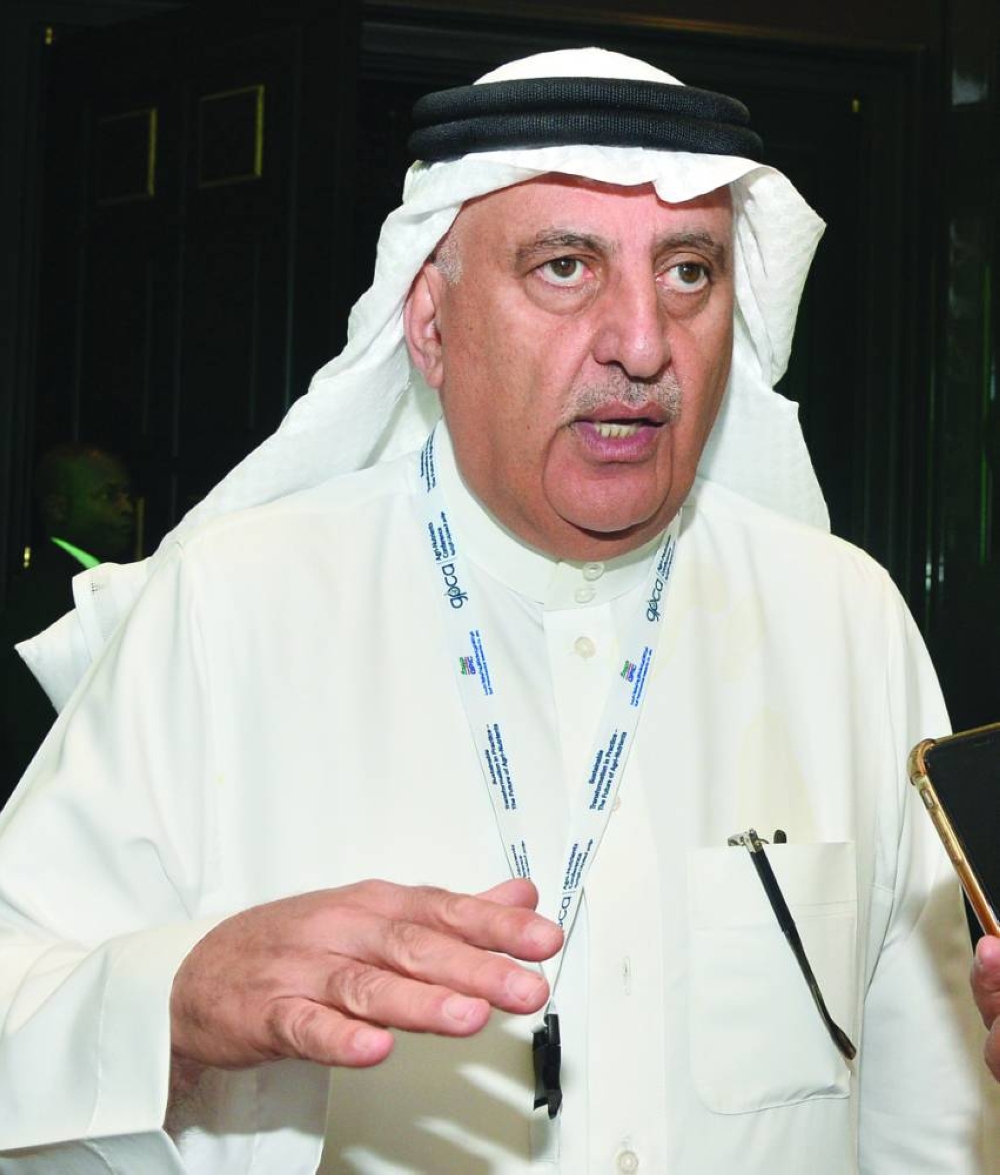
Dr Abdulwahab al-Sadoun, secretary-general of the GPCA, during an interview with Gulf Times . PICTURE: Shaji Kayamkulam
Qatar’s fertiliser and petrochemical industries have ample scope for growth, noted Dr Abdulwahab al-Sadoun, secretary-general of Gulf Petrochemicals and Chemicals Association (GPCA).
“Qatar is the ‘birth place’ of the agri-nutrients industry. Fertiliser production in the region started through Qafco in 1969. And in 1974, polyethylene production started through Qapco,” al-Sadoun said in an exclusive interview with Gulf Times in Doha on Monday.
“It has been significant growth over the years, because of God’s grace. I am quite satisfied with the progress made by this industry in Qatar. There is a potential to further grow the industry in Qatar, which has been blessed with natural resources,” al-Sadoun noted.
Agri-nutrients (fertilisers) represent a substantial part of the GCC chemical industry, and play a crucial role in the GCC’s road to sustainability and food security.
“The GCC region is blessed with ample quantities of natural resources, be it natural gas, sulphur or phosphate, which are the ingredients to make fertiliser or agri-nutrients. We have been expanding our production capacity since the launch of this industry here in Doha, Qatar – in the late 60s.”
Al-Sadoun revealed that the GCC region produced about 33mn tonnes of fertilisers in 2022, which represented 8% of nitrogen fertilisers and 11% of phosphate fertilisers on a global perspective.
“We (GCC) export 95% of our output to global market. This generated a revenue to the tune of $14bn in 2022. We produce 152mn tonnes of chemicals and petrochemicals in the region, of which 23% by volume is fertiliser.”
Asked about the challenges being faced by the industry in the region, al-Sadoun noted, “There are challenges. Logistical issues are there, which are steadily increasing due to regulations related to emissions. We are working closely with technology producers to reduce greenhouse gas (GHG) emissions, while we expand our production.
“This is a requirement, which needs significant investment. We need (really) the governments to support the industry to continue its sustainable growth in the region. That’s a challenge. It is doable, but.”
Al-Sadoun said, “With the world population projected to exceed 9.8bn people in 2050 and 11.2bn in 2100, more pressure is being added on our finite natural resources. Agri-nutrients play an essential role in helping to grow more food with less resources. As major producers and exporters of agri-nutrients globally, our region alone helps to feed over 200mn people globally. Therefore, our role in the global food chain is essential.
He added: “The future of agri-nutrients will require us to adapt food security strategies to meet mounting demand. It will require us to consider the impact of climate change and strike a balance between the health of our environment and sustainable, profitable business. “We must also optimise the agri-nutrients value chain, while reducing carbon emissions, and play an active role in mitigating the climate impact of agriculture through the implementation of sustainable practices, education and collaboration.”

